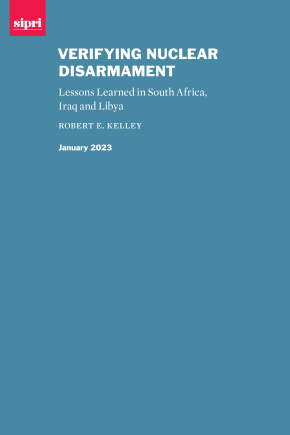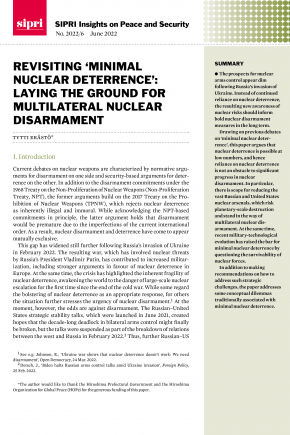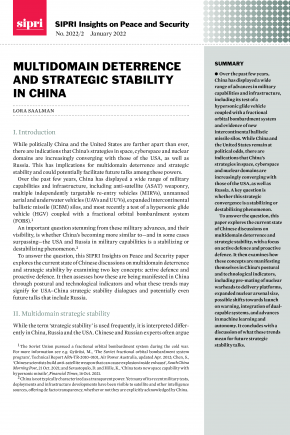93 441 19 47 - 635 989 645
www.centredelas.org
www.demilitarize.org
www.bancaarmada.org
www.pacifist.app
La informació continguda a aquest missatge és
reservada i està prohibida la seva utilització o divulgació per a altres
finalitats, en compliment de la LOPD, la LSSI i la normativa de
seguretat vigent. Si per error heu rebut aquest correu electrònic, si us plau
feu-nos-ho saber i elimineu-lo a continuació.
De: SIPRI <update@sipri.org>
Date: dc., 7 de juny 2023 a les 14:24
Subject: New SIPRI Publication—The Role of Umbrella States in the Global Nuclear Order
To: <qsanchez@centredelas.org>
|
||||||||
|
||||||||
|
||||||||
|
||||||||
|
|
--
This message was sent to qsanchez@centredelas.org by update@sipri.org
To forward this message, please do not use the forward button of your email application, because this message was made specifically for you only. Instead use the forward page in our newsletter system.
To change your details and to choose which lists to be subscribed to, visit your personal preferences page
Or you can opt-out completely from all future mailings.




